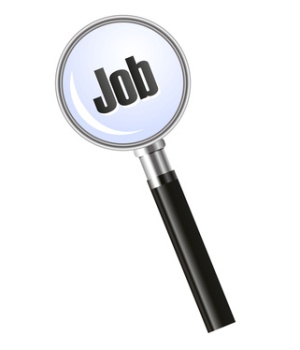 Losing your job is a life changing experience, even if you are only out of work for a short time. One of the aspects of your life it can really affect is your financial well being and your credit history. Not only is your income reduced but if you have credit cards that already have a balance in them (and many Americans do) paying even the minimum required every month can become a struggle, damaging your credit record.
Losing your job is a life changing experience, even if you are only out of work for a short time. One of the aspects of your life it can really affect is your financial well being and your credit history. Not only is your income reduced but if you have credit cards that already have a balance in them (and many Americans do) paying even the minimum required every month can become a struggle, damaging your credit record.
Credit Card Debt and Unemployment – How to Plan to Manage It
Possibly one of the most important things you can do if you are unemployed and already have credit card debt is to try not to make any more new purchases. It can be very tempting to use your credit cards to lessen the impact of your reduced income level on you and your family’s lifestyle but this short term solution can have long term consequences if you do not find a new job in a short period of time.
Making minimum payments on time on any credit card balances you do have will keep your credit card lender happy – to a certain extent – and will help prevent serious damage to your credit score. When you are unemployed you should focus on your secured debt first – mortgage, car payments – and only when they are satisfied should you determine how much you can afford to pay down your credit card debt any further.
If you have several credit cards with balances on them it may be worth looking into consolidating those debts onto the card with the lowest APR which will at least help keep the impact of the interest you will be charged if you have to start making smaller payments than you used to a minimum.
Some people suggest that if you have a good credit rating and a source of income you can prove (unemployment benefits, savings, alimony or child support etc.) applying for a 0% APR credit card as soon as you lose your job and transferring any credit card balances to that is a good idea. Many cards offer a 0% APR for about 12 months, so doing so will stop interest accruing while you pay off the existing debt as best you can. Being approved for a new credit card while unemployed will be a challenge though, especially with so many people in the same position so the option may not be available to you.
Working with Your Lender
If you become unemployed contacting your creditors – all of them – to make them aware of your situation is one of the first moves you should make. With unemployment levels high many lenders are willing to work with those who have lost their job to make payment arrangements. Some credit card companies will agree to defer payments or make other arrangements but they cannot do so unless you contact them.
Credit Card Risks You Should Not Take While Unemployed
Many times those who are unemployed still run into trouble with their credit cards simply because they do not have the available income to make even the minimum payments on their balances and there is very little they can do about this. There are however some credit card risks people who are unemployed take that can lead to more trouble than just the lowering of your credit score. Here are some of them:
Lying to Get a New Credit Card
Faced with mounting expenses or credit card balances on a high APR credit card can lead some people to be tempted to lie about their employment status to gain a new credit card to use while unemployed. Some people do get away with this initially, especially if they had the same job for some time which would make it less likely that a lender would actually make that confirmation phone call to your former place of employment. However, if your deception is discovered at a later date by lying on a credit card application you will have technically committed credit card fraud, something that can have serious legal consequences.
Paying Secured Debt Off with Credit Cards
In an attempt to keep life as normal as possible many people who find themselves unemployed but with still with the credit available to them are tempted to use their credit cards to pay off their secured debts – their home payment, their car payment – and then survive by making minimum payments on the new credit card balance.
On the surface this seems like a good solution but this credit card behavior can lead to debt that will be very hard to get out of. With interest rates running at at least 15-18% a single large payment – a $600 mortgage payment for example – will accrue interest very quickly. In a single month on a higher APR credit card you could see $120 in interest charges added to that $600 balance.
Before resorting to this kind of behavior speak to your secured debt lenders to try to work out a direct payment agreement with them. Do so quickly, as soon after you lose your job as possible, before you begin falling behind with your bills. Showing a willingness to pay whatever you can right from the start will make a favorable impression on your lenders and give you the best chance at managing on a reduced income.